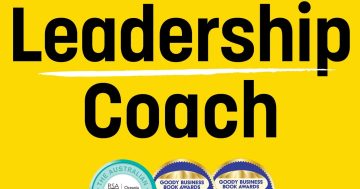Paul Lyons* says everyone can develop the mental strength to change bad habits and replace them with ones that promote success.
 Everyone has a different view of their own level of willpower.
Everyone has a different view of their own level of willpower.
I view it as the mental strength required to break my bad habits or start behaviour that leads to more positive habits.
In his book The Way to Willpower, Henry Hazlitt defines willpower more eloquently as follows:
“The ability to keep a remote desire so vividly in mind that immediate desires which interfere with it are not gratified.”
Either way it is whatever stops me (or more usually doesn’t) from eating chocolate when I shouldn’t, or being too easily distracted by yet another online post.
Willpower is directly related to your level of self-control.
Possessing strong willpower helps you resist temptation, whilst a weaker willpower makes it far more likely that you will give in to destructive behaviour.
If you have willpower you are more likely to manage your life in accordance with your chosen goals.
Without it you will never take the appropriate actions to change your life.
Here are five ways to strengthen your own willpower:
Don’t go hungry.
When your glucose level falls this substantially reduces your ability to maintain self-control and focus.
So to maintain your willpower, it is important to have eaten properly.
Roy Baumeister (author of Willpower: Rediscovering the Greatest Human Strength) says this include foods with a low glycaemic index – most vegetables, nuts and many raw fruits, cheese, fish and meat.
Constantly remind yourself of your goals.
You can maintain your willpower by regularly reminding yourself of the benefits associated with accomplishing your goals.
This is best achieved through a sentence or mantra on what success would entail and kept where you can see it, read it and be reminded of it on a regular basis.
This visual reminder helps to deepen your desire for success which increases your ability to resist other temptations.
Author, Kelly McGonical emphasises the role that desire plays in strengthening willpower in her book The Willpower Instinct.
She describes desire as: “The brain strategy for action…it can be both a threat to self-control and a source of willpower.
“When dopamine points us to temptation, we must distinguish wanting from happiness, but we can also recruit dopamine and the promise of reward to motivate ourselves and others.
“In the end, desire is neither good nor bad – what matters is where we let it point us, and whether we have the wisdom to know when to follow.”
Develop a new behaviour in one area of your life.
By developing a new good habit in one part of your life it becomes much easier to make additional changes in other areas.
For example, developing an exercise habit will enhance your willpower and make it easier to develop additional positive habits.
According to author, Heidi Grant Halvorson in her book Succeed, recent research has shown that engaging in daily activities such as exercising, keeping track of your finances or what you are eating are beneficial to your willpower.
Or it could be just remembering to sit up straight every time you think of it, helping you to develop your overall self-control capacity.
For example, in one study, students who adhered to a daily exercise program not only became physically healthier, but they also were more likely to wash dishes instead of leaving them in the sink.
They were also less likely to impulsively spend money.
Get to work straight away and do a hard task first.
One easily-formed willpower habit is to get to work straight away once you arrive at your workplace and, ideally, tackling a hard or unpleasant task first up.
This habit provides a huge uplift in momentum for the day ahead because you are into your daily routine with a big win.
Finish the day by completing a task.
In a similar vein you can build your willpower by developing the habit of finishing your day at the completion of a task and not mid-task.
This enhances your sense of achievement and you reinforce your own view of the depth of your willpower.
*Paul Lyons is an experienced business leader, adviser and coach. He can be contacted at [email protected].
This article first appeared on the Mental Toughness blogsite.











